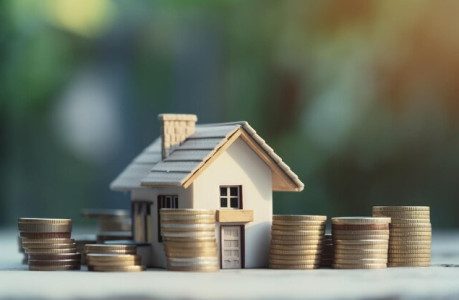Smart Home Buying: 7 Things To Verify Before Making A Real Estate Investment

In today’s dynamic real estate landscape, the quest for the perfect home transcends beyond mere aesthetics and location.
As individuals embark on the journey of homeownership, the notion of smart buying extends to meticulously verifying essential aspects of a property. For novice or seasoned investors, a thorough evaluation of potential homes is essential for successful real estate ventures and portfolio expansion.
The process of buying a home involves more than falling in love with its curb appeal or envisioning a life within its walls. It demands a strategic approach, informed decisions, and a keen eye for detail. Understanding key components before sealing the deal safeguards your investment and ensures a fulfilling living experience ahead.
Here Are Seven Prime Things To Verify Before Making A Real Estate Investment

In this blog, we delve into the pivotal factors that demand scrutiny before committing to a real estate investment.
1. Location And Neighborhood
Location and neighborhood dynamics are crucial in real estate investment, impacting desirability, resale value, and quality of life. A property’s location significantly influences its attractiveness and long-term worth beyond its physical structure. The surrounding neighborhood shapes the overall living experience and plays a pivotal role in determining the property’s value.
According to JD Power, American households spend about 2.24% of their monthly income, approximately $5,000 yearly, on gasoline. This makes the location and neighborhood crucial considerations for potential homebuyers. Choosing a home near amenities, workplaces, and public transit can lessen gas dependence, leading to significant cost savings for households.
Also, a well-connected neighborhood enhances convenience, aligning transportation costs with broader financial considerations for a practical smart home purchase. Besides, delve into the neighborhood’s demographics, crime rates, and socio-economic trends to gauge its stability and potential for long-term growth. Understanding the local market dynamics and development plans can provide valuable insights into the future trajectory of the area.
2. Property Condition And Inspection
Prioritize professional home inspections to reveal hidden defects like plumbing leaks, electrical hazards, roof damage, and foundation issues. A detailed report empowers buyers to negotiate repairs or price adjustments, fostering transparency and peace of mind during the transaction. Also, assess the age and condition of major components like HVAC systems, appliances, and water heaters to anticipate future maintenance expenses and replacements.
Invest in a qualified inspector rather than relying solely on the seller’s inspection. Hire a licensed and insured professional specializing in your property type for a thorough assessment. According to the National Association of Realtors, certified home inspectors typically charge $300-$500 for the assessment. This is a small investment compared to potential repair costs.
3. Radon Levels And Testing
While you’re busy inspecting the roof, plumbing, and foundation, there’s one invisible threat that might easily slip your radar, i.e., radon gas. This odorless, radioactive gas occurs naturally in soil and can seep into homes through cracks and foundations.
Radon exposure is linked to lung cancer, making radon testing a crucial aspect of home buying and maintenance. According to Affordable Environmental Services, radon adheres to dust and other airborne components, which may be inhaled into the lungs, leading to tissue damage. Alpha particles associated with radon are 100 times more likely to cause cancer compared to other forms of radiation.
Taking action against radon doesn’t require a major upheaval. Simple radon testing kits are readily available and provide reliable results. Place the kits in your lowest living area for the recommended timeframe and send them to a certified lab for analysis.
If your test reveals elevated radon levels, don’t panic. There are effective ways to mitigate the risk. Seeking the help of specialized professionals is the best way. For a free consultation with a reputable company, visit their webpage and contact them using their “contact us” page.
Contacting a reputable radon mitigation business is the first step towards achieving peace of mind and creating a healthier living environment. Radon mitigation involves installing a system that draws the gas from beneath your home and safely vents it outdoors. These businesses specialize in designing and installing these systems, ensuring your home adheres to safety standards and regulations.
4. Legal And Financial Considerations
Navigating the legal and financial aspects of a real estate transaction is paramount to ensuring a smooth and secure home-buying process.
Before closing a real estate deal, enlist a qualified real estate attorney to scrutinize contracts, title deeds, and disclosure statements. Address any uncertainties and verify adherence to local regulations to preempt future legal complications. This diligence helps mitigate the risk of disputes arising post-transaction.
Conduct a comprehensive financial analysis to evaluate the property’s affordability, considering mortgage rates, closing costs, property taxes, and homeowners’ insurance premiums. Understanding the long-term financial obligations of homeownership facilitates prudent financial planning, minimizing the risk of financial strain in the future.
5. Homeowner’s Association (HOA) Regulations
While some communities operate independently, others fall under the umbrella of a Homeowner’s Association (HOA). Before buying in an HOA-managed community, understanding their regulations is crucial.
Access the HOA documents, including the Declaration of Covenants, Conditions, and Restrictions (CC&Rs), to understand rules, fees, and governance. Assess whether HOA regulations align with your lifestyle preferences regarding parking, noise, and renovations. Understand the financial implications of HOA fees, considering maintenance and amenities. Engage with current residents and board members to gather insights and actively participate in shaping the community’s future.
Millions of Americans call community associations home, with a staggering 75.5 million residents residing in HOAs, condominiums, and housing cooperatives. This represents a significant portion of the US housing market, encompassing 30-33% of the total property landscape. The Foundation for Community Association Research forecasts growth, with US community associations potentially increasing from 365,000 to 370,000.
6. Environmental Factors
Assessing environmental factors is vital in real estate investment as they can influence long-term property value and residents’ quality of life. Considering environmental factors empowers buyers to address natural hazards and ecological risks, thereby improving their investment strategy and decision-making process. Assessing these factors proactively enables investors to safeguard against potential adverse effects on the property and its surroundings.
Before buying a property, assess its vulnerability to natural disasters like floods, wildfires, hurricanes, or earthquakes. Consult local authorities and examine historical data to understand the frequency and intensity of such occurrences. Also, analyze air, water, and soil quality to maintain a healthy environment, conducting tests for potential pollutants or toxins.
7. Future Development And Resale Potential
Anticipating future development and assessing resale potential are critical considerations for savvy real estate investors. Understanding the dynamics of the local market and potential growth opportunities can influence the appreciation of your investment over time.
Research the area’s planned infrastructure, zoning regulations, and urban development to understand prospects. Proximity to transportation and commercial hubs hints at appreciation potential. Also, analyze historical property trends, job growth, and economic indicators to assess resale desirability and liquidity in the market.
Empowering Your Home Buying Journey

Real estate investment transcends transactions, demanding strategic foresight, diligence, and informed choices. Navigating the intricacies of the housing market necessitates thorough verification of critical aspects to protect investments and set the stage for prosperity. Prioritizing due diligence ensures a solid foundation for success in this dynamic and competitive arena.
As you embark on your home-buying journey, remember the importance of due diligence, foresight, and informed decision-making. Armed with knowledge and insight, you pave the way for a rewarding and fulfilling homeownership experience.
Read Also:

























Leave A Reply